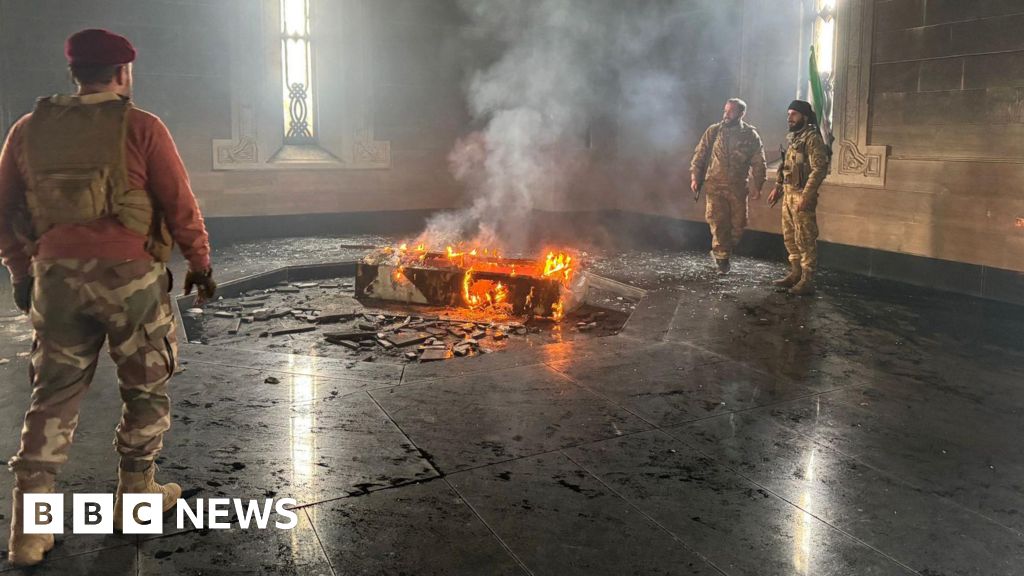Syrian rebel fighters have destroyed the tomb of late president Hafez al-Assad, father of ousted president Bashar, in the family’s hometown.
Videos verified by the BBC showed armed men chanting as they walked around the burning mausoleum in Qardaha, in the north-west of the coastal Latakia region.
The rebels led by Islamist group Hayat Tahrir al-Sham (HTS) swept across Syria in a lightning offensive that toppled the Assad dynasty’s 54-year rule. Bashar al-Assad has fled to Russia where he and his family have been given asylum.
Statues and posters of Hafez and his son have been pulled down across the country to cheers from Syrians celebrating the end of their rule.
In 2011, Bashar al-Assad brutally crushed a peaceful pro-democracy uprising, sparking a devastating civil war in which more than half a million people have been killed and 12 million others forced to flee their homes.
Hafez al-Assad ruled Syria ruthlessly from 1971 until his death in 2000, when power was handed to his son.
He was born and raised in a family of Alawites, an offshoot of Shia Islam and a religious minority in Syria, whose main centre of population is in Latakia province near the Mediterranean coast near the border with Turkey.
Many Alawites – who make up about 10% of the country’s population – were staunch supporters of the Assads during their long stay in power.
Some of them now fear that they may be targeted by the victorious rebels.
On Monday, a rebel delegation with members of HTS and another Sunni Muslim group, the Free Syrian Army, met Qardaha elders and received their support, according to Reuters news agency.
The rebel delegation signed a document, which Reuters reported emphasised Syria’s religious and cultural diversity.
HTS and allied rebel factions seized control of the Syrian capital Damascus on Sunday after years of civil war.
HTS leader Abu Mohammed al-Jolani, who has now started using his real name, Ahmed al-Sharaa, is a former jihadist who cut ties with al-Qaeda in 2016. He has recently pledged tolerance for different religious groups and communities.
The UN envoy for Syria has said the rebels must transform their “good messages” into practice on the ground.
The US secretary of state meanwhile said Washington would recognise and fully support a future Syrian government so long as it emerged from a credible, inclusive process that respected minorities.
HTS has appointed a transitional government led by Mohammed al-Bashir, the former head of the rebel administration in the north-west, until March 2025.
Bashir chaired a meeting in Damascus on Tuesday attended by members of his new government and those of Assad’s former cabinet to discuss the transfer of portfolios and institutions.

